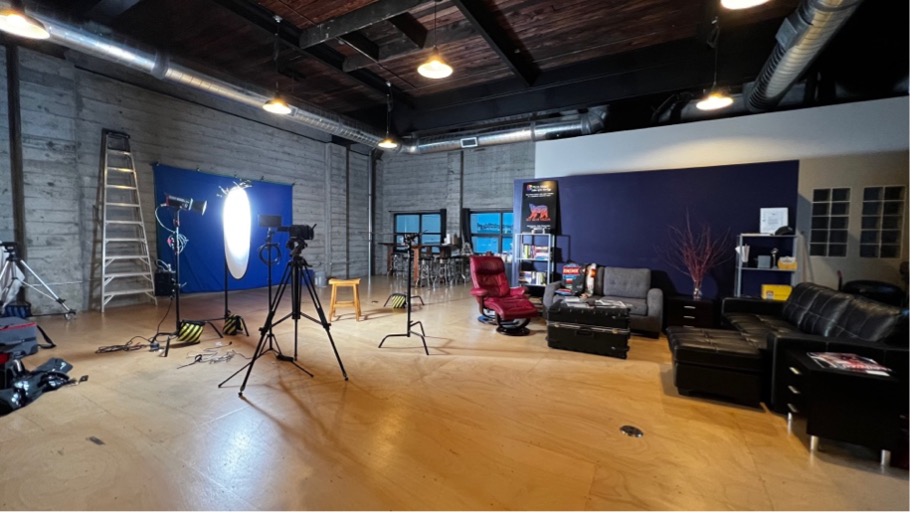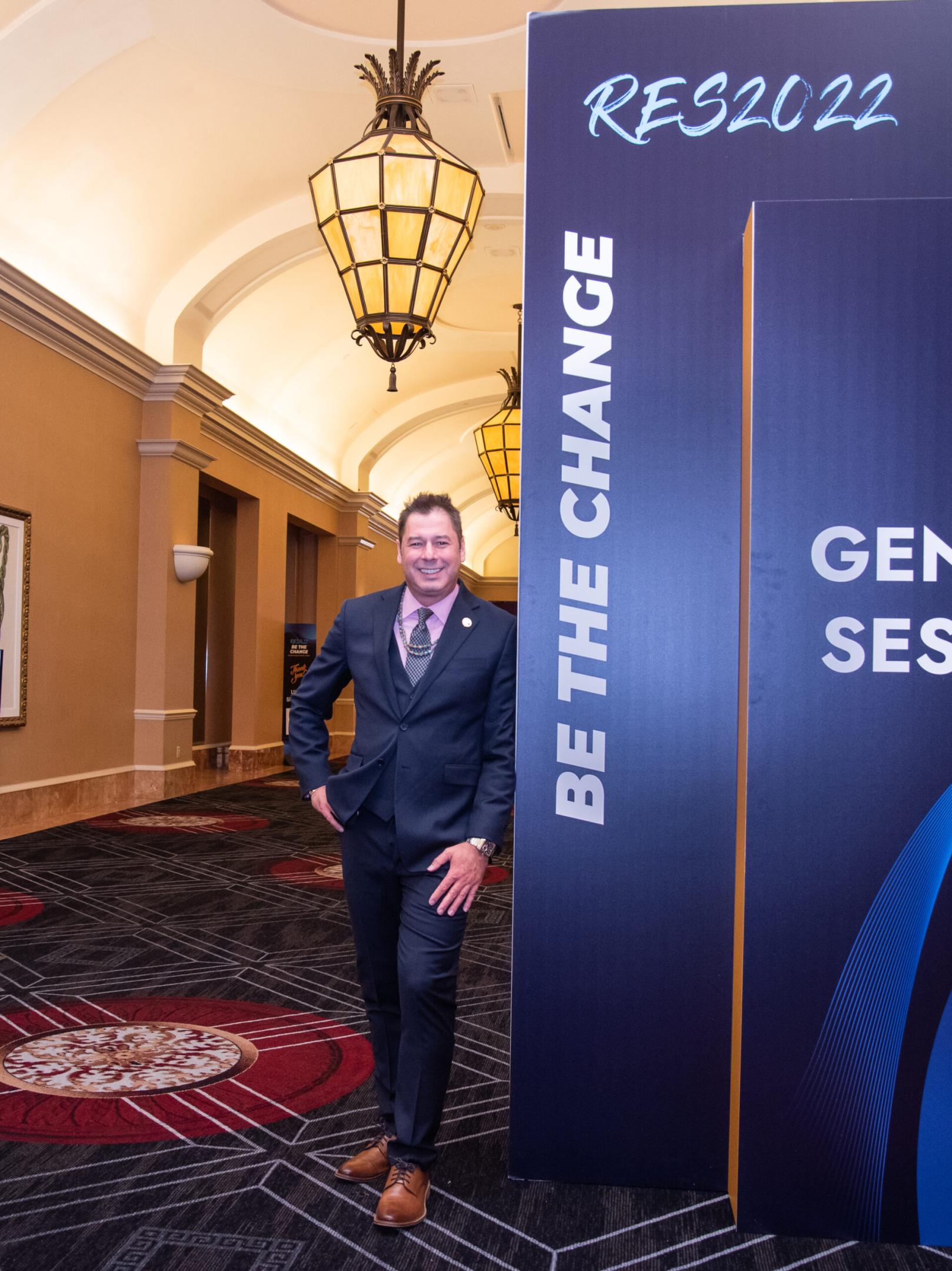Indigenous Tech: A Sit Down with Virtual Gurus Founder Bobbie Racette

Indigenous Tech: A Sit Down with Virtual Gurus Founder Bobbie Racette
We recently sat down with Bobbie Racette, who is the founder and CEO of Virtual Gurus, which is a Canada-based technology company that serves as a talent marketplace that matches organizations with remote administrative workers. We talked with Bobbie about her path to founding and growing her own business, whose need has only grown during the pandemic. Virtual Gurus recently closed a Series A funding round, making Bobbie and Virtual Gurus the only Indigenous woman-owned tech company in Canada to achieve such a feat. Though only launched in 2016, Virtual Gurus now has 40 employees and 650 virtual assistants! We hope you enjoy learning more about Bobbie and how she achieved her business success.
As a side note, in 2021, The National Center partnered with the Consulate General of Canada in Chicago to produce a report on trade opportunities for Canadian indigenous tech companies to do business in Illinois, Missouri, and Wisconsin. Trade, and in particular with Canada’s First Peoples, is and will continue to be a focus area for The National Center.
- Tell us a bit about yourself and your business, what made you want to go into business and how long have you been in operation?
I identify as an Indigenous woman and part of the 2SLGBTQIA+ community. I was raised by my Indigenous Mom and her life partner, my other mom, in Regina, Saskatchewan. When I turned 18, I held up to my nickname ‘Gypsy’ and travelled anywhere and everywhere, from living in orchards like the Okanagan Valley and picking fruit to travelling the UK for a few years to living in Mazatlan, Mexico. I chose to travel over school at the time. Years later, I went on to college to learn sign language, as my aspiration when I was younger was to be a music teacher for hard of hearing children.
I moved to Montreal and lived there for about nine years. As my parents aged, I knew I needed to leave and move closer to home. So I moved to Calgary in 2012 and worked as a safety technician. When the layoffs in oil and gas happened, the idea of Virtual Gurus was born. I never wanted or thought I’d ever be in business. My original plan was to be a music instructor for hard-of-hearing children. My pivot was to create my own job because no one would offer me a position.
I started signing up for companies now considered our competitors to offer my services as a Virtual Assistant (VA). It was then I realized that I was on to something, so next thing you know, I became the CEO, CTO, salesperson and virtual assistant. I launched Virtual Gurus in 2016 and hired my first VA in mid -2017. I like to call myself an accidental entrepreneur. Virtual Gurus is a talent marketplace that matches organizations with remote administrative workers — virtual assistants (VAs).
Businesses that need fractional support with ongoing tasks or project work can sign up for a monthly subscription package starting at 10 hours per month or more, depending on how much help they need. If their needs change, they can scale their subscription up or down or add more virtual assistants with different skill sets.
- If you were to tell any small business owner about starting and growing their own business, what would you like to share with them or what advice would you give them? Advice specific to Native entrepreneurs?
Be prepared to learn. Google was my best friend. When I started Virtual Gurus, I had to learn everything on my own, including how to create financial documents, build technology and websites, hire, and ensure I had all the right licensing to have this type of business. Persistence, mixed with passion and a clear vision, is vital. Don’t be afraid to live your story.
- Did the pandemic affect your business operations?
When COVID-19 hit, the panic set in fast, and we realized that when we started losing clients, we had to also think about all the workers using our platform – many of whom had used it as one of their primary sources of income. So while we wanted to maintain our client base, we also had to think about how to keep the Virtual Assistants (VAs) working.
We built our People over Profit program, where we offered 110 startups across Canada free services so that while they had to pivot, they wouldn’t have to worry about their back-office support. In addition, we also offered almost 40% off discounts to small businesses that came in; this helped us to keep our VAs working. Finally, we recognized our current clients, who had taken a hit and allowed them to pause for up to 60 days.
We were not immune, and, like everyone else, we took a pretty big hit early in the pandemic, but we realized that we could use our platform and help others, which made our team come together as one. I’m happy to say that 2020 turned out to be quite a successful year for us, resulting in close to a 300% year-over-year growth. Of course, I want that to be more, but I suppose it isn’t too bad, considering we are in a pandemic.
- Where and how can our readers purchase your products or services?
Clients can hire virtual assistants (gurus) who serve our clients. Services are available on our website. Clients input their requirements via Talentplace (our talent marketplace), and then we use our proprietary algorithm to match them with the best virtual assistants for their needs. Our VAs can support tasks ranging from general admin to more specialized work such as bookkeeping or social media management.
We also have a by-the-task option through our askBetty offer. It provides access to an on-demand personal assistant through the convenience of Slack. In this case, clients purchase a bundle of credits and install our Slack app to request support with specific tasks.
- Anything else you want to add?
I recently closed a Series A funding round, and I am proud to say I am the only Indigenous Women in Tech in Canada to close one. We continue building the technology that will allow us to go global. Virtual Gurus now has a team of 40 employees (and growing) and over 650 virtual assistants.
I always think of our virtual assistants (our North Star at Virtual Gurus), and the income-earning opportunities we provide. That’s the whole reason I’m doing this. We need to create safe and welcoming communities for aspiring Indigenous entrepreneurs. There are so many people from our communities who have incredible ideas and untapped potential but don’t know how to monetize their ideas. Sometimes all they need is someone to believe in them, give them a bit of guidance or point them in the right direction.
When we achieve a certain level of success, I think it’s our duty and privilege to make time to encourage the next generation, whether that’s through mentoring directly or sharing our lessons learned through larger communities and media platforms with a broader reach.
I’m really proud of the opportunities we’re providing for underrepresented folx, and the more of them I see succeed, the more I feel I have achieved. But there’s so much more opportunity out there. Whether it’s expanding into new markets, bringing more efficiency into the business, or dreaming up new ways to create positive social impact.



